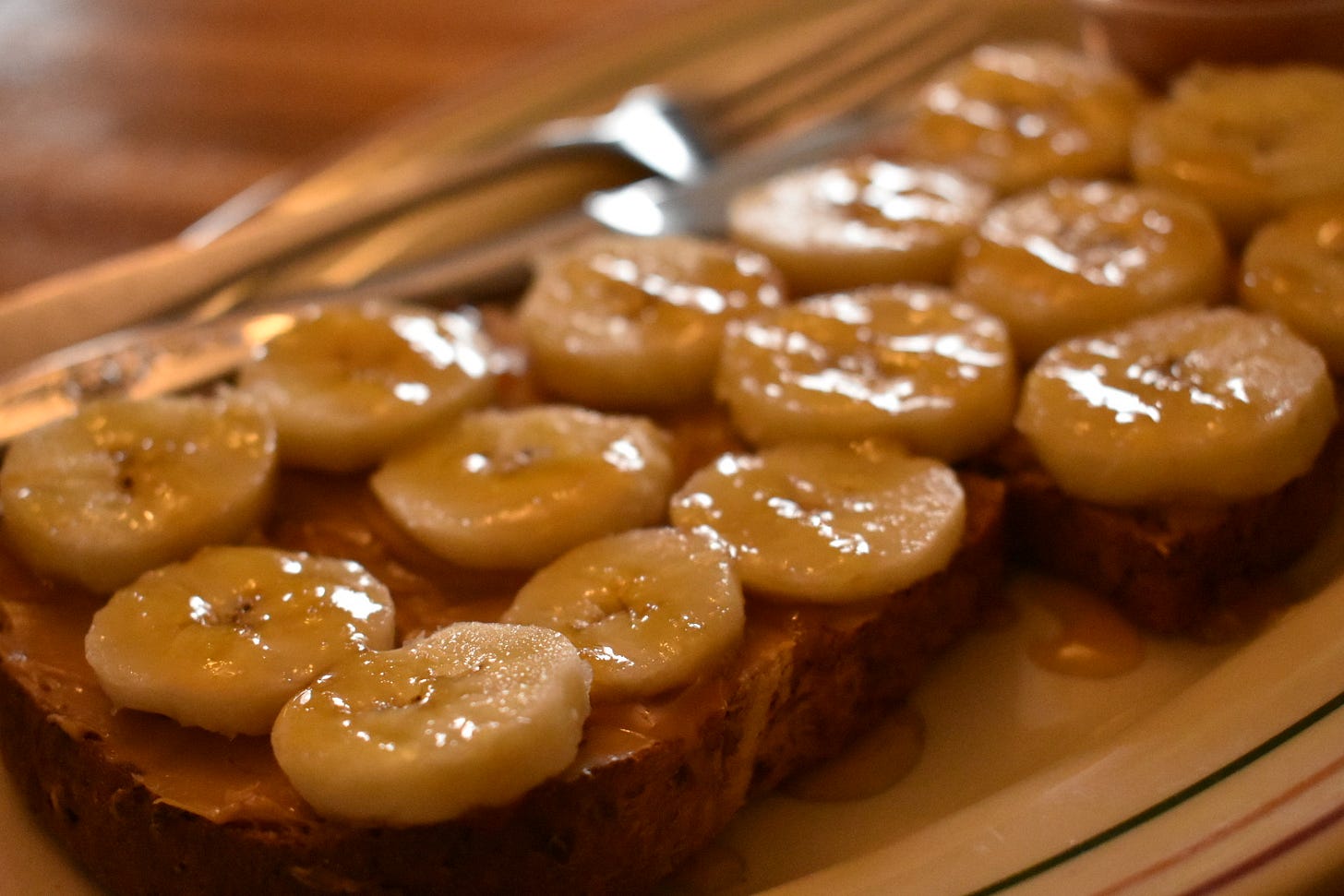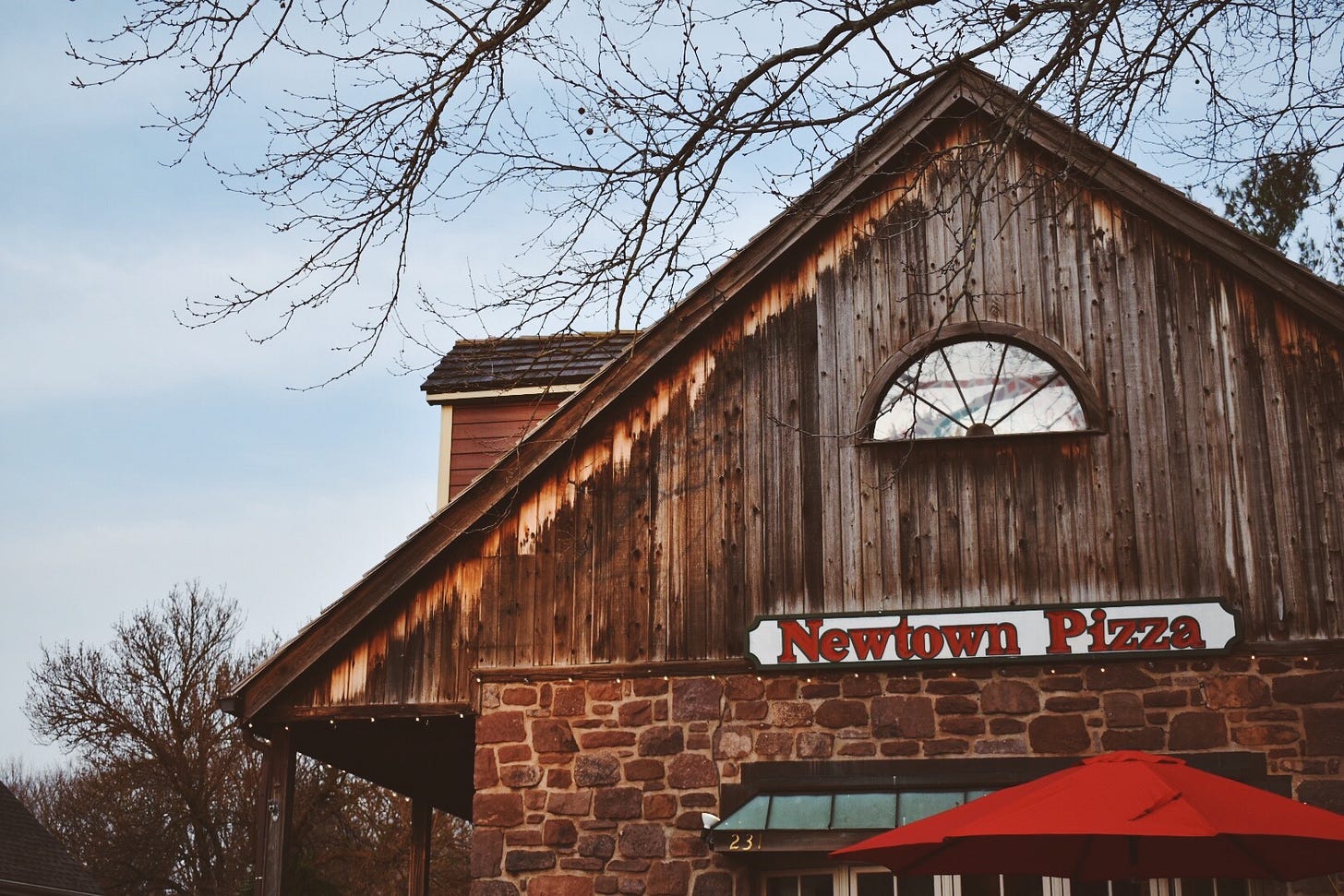Since I was a teenager, I wanted to get into photography. I begged my parents for a DSLR camera, only to be handed cheap digital cameras. I tried to make the best of it, scrolling through endless posts on DeviantArt in the hopes that one day I would get a nice camera and take beautiful photos. Of course, you don’t need a fancy camera to get started, but Teen Luka didn’t know that. All Teen Luka knew was she wanted to take photos because photos were hella cool. (direct quote from Teen Luka)
When I got my first full-time job at the age of 25, I went ahead and saved up for my first DSLR camera. I was obsessed with it, taking it with me everywhere while living in Bucks County, Pennsylvania, a place that is often used as the backdrop of Hallmark Films (fun fact: I’ve accidentally walked onto three Hallmark film sets).
It now sits in my room in a pile of camera supplies that are collecting dust. I’m now 31 and recently came upon my photography again. My heart ached at the sight of an excited younger Luka’s photos that were soon discarded.
The reason I gave up photography was because of a cruel critic. I don’t mean my inner critic. But yeah, she sucks too. No, it wasn’t me this time, it was a member of my family. After a few months of taking photos, a family member moved in with me temporarily. They had just returned from a trip alongside several photographers, and though they never picked up a camera, they were on my tail. Every time I held it in my hands and prepared to take a shot, this family member was in my ear.
You don’t know what you’re doing.
You don’t know anything about photography.
You’re doing everything wrong.
I know better than you.
They snidely asked me about aperture and this and that. I’ve never been good with technical terms. I don’t want to sound like a jerk, but I’ve always been the kind of person who picks things up naturally. What I mean is I can usually pick up things of a creative or artistic nature without much help. I’m entirely self-taught, having never had success with teachers (but desperately wanting it). I can’t explain to you what an F-stop is, but my hands naturally do. I can’t explain how I get the results I want, but I do.
Said family member knew this and used it against me. They threw around color theory, lighting, f-stop, aperture, composition, blah blah blah. Everything I did was wrong. Everything I did was stupid. I was an idiot who didn’t know as much as they did. The list goes on.
I endured this torment quietly, then one day shoved the camera in their hands and insisted they take a picture. They took two, were unsatisfied with the result, and stayed quiet the rest of the day. However, the comments continued.
There was a photo I was especially proud of, and when I showed it to them, they brushed me off. They showed my photos to the photographers they met and smiled as they explained that according to these mysterious photographers, I was mediocre at best. I started hiding my camera to avoid having to hear about it. Eventually, I just gave up on the camera and the notion that I could get into photography altogether.
I understand some people will read this and think, “Just don’t listen to them” but it was constant. Recently I was speaking with my cousin when she made the comment, “The people we love the most hurt us the most.” We dug into this comment, burrowing into it into exhaustion. We talked about the nature of family, the almost entitlement we feel to family members that serves as a green light to be cruel. There’s this underlying feeling that “You’re family and will always love me, therefore it doesn’t matter what I say or do.” Of course, that’s ridiculous. But it’s something all of us are guilty of.
In that sense, this family member was the living embodiment of this. Their constant torment as I was starting on a new venture was justified in their eyes because we’re family. In the end, we still love each other even after treating each other like shit.
When I worked in Immigration Law, I specialized in VAWAs (among other) case types. VAWA stands for the Violence Against Women Act, and in simplified terms, it’s a method for immigrants to gain legal status if they are married to or the parent of a U.S. Citizen or LPR who abuses them. I spent 40 hours a week reading about domestic abuse in heavy detail, and nearly every time when we asked the client why they didn’t leave their abusive partner, they remarked, “We love each other.”
I once read a client who wrote poetry in his spare time in a secret journal. When his wife (U.S. Citizen) found out, she destroyed it and constantly made fun of him for writing poetry. Eventually, he gave up on his desire to continue writing poetry, crying to the firm of how this small thing nearly pushed him over the edge. My situation was nowhere near this extreme, but it was enough to push me away from a creative outlet that was bringing me joy in my day-to-day. In a world as tumultuous as ours, a creative outlet can be a lifeline.
When I look at the pictures again, I can quickly spot faults. This doesn’t hurt my feelings in any way. I was well aware even then that I was going to need to make a lot of mistakes and take bad photos before I could confidently take good ones. But I’m also amazed at what I was doing, at the pieces that peek out and say, “See? You could totally do this.” And I look at them with shame, knowing I should have kept going.
I’m not here to fish for compliments. Part of me wants to sit in that frustration and shame for a little bit to better understand it. The ability and opportunity to express yourself through a creative outlet is a gift, and it has the unique ability to enhance your life without any requirement of expertise. I don’t need to be a good photographer, but if it makes me happy, then I need to keep taking photos.
Creating is hard when your inner critic is ready to tear you apart and trust me, mine is always on the attack. Creating when someone close is telling you your work is shit is a whole other landmine. I wasn’t prepared for it, and I don’t know that I’m any better now. But I hate the thought of quieting myself down because someone else wants to shout at the top of their lungs.
At the end of the day, I’m the one who put my camera away. I’m not going to put all the blame on me, but enough time has passed now that their words don’t hurt me. Criticism will come. My work has been torn apart in front of me, but I’m still here and still creating. I can’t get that time and practice back, but I can start again from where I am.
Well, reader, here I am, dusting off my camera, reconsidering my fascination with photography, and giving myself a second chance. I hope you do the same. I hope you have the strength to try again.











“Eventually, he gave up on his desire to continue writing poetry, crying to the firm of how this small thing nearly pushed him over the edge.” Wow. That was no small thing. His wife didn’t just destroy his poems, she erased an essential part of him. She denied his inner life from whence those poems sprang. What kind of wife was this? Obviously, she was someone who had no idea, no appreciation, and no respect for who he really was.
Once again, you have given us an essay that feels sincerely honest and emotionally available. Thank you for writing this.
It's quite a coincidence that earlier today I wrote of F Scott Fitzgerald's inner turmoil as he saw himself a failed writer. Nearly 90 years ago he wrote his 'confessional'. But he too didn't give up. Well done for picking up your camera again 👍